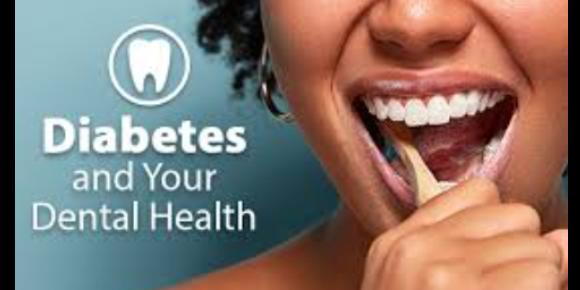Diabetes is a chronic condition that affects millions of people worldwide, and its impact extends beyond blood sugar management. One area often overlooked is the profound effect diabetes has on oral health. In this blog, we will explore the relationship between diabetes and dental health, and why individuals with diabetes need to pay extra attention to their oral hygiene and dental care.
Diabetes and Oral Health: The Link
- Increased Risk of Gum Disease:
People with diabetes are more susceptible to gum disease, also known as periodontal disease. Elevated blood sugar levels weaken the body’s ability to fight off bacterial infections, including those in the mouth. This makes individuals with diabetes more prone to gum infections, which can manifest as bleeding gums, swelling, and ultimately lead to more severe periodontal problems.
- Slower Healing:
Another issue is that diabetes can slow down the body’s natural healing processes. This can make it more challenging to recover from dental procedures, such as extractions or gum surgery. Slower healing may also increase the risk of complications during dental treatments.
- Dry Mouth:
Dry mouth, or xerostomia, is a common symptom in diabetes. Reduced saliva production can lead to discomfort, difficulty in swallowing, and an increased risk of dental problems like tooth decay and bad breath. Saliva helps to neutralize acids and wash away food particles that cause tooth decay, so its scarcity can have detrimental effects on oral health.
- Higher Risk of Thrush:
Diabetes can promote the overgrowth of the yeast Candida albicans in the mouth, leading to oral thrush. Thrush appears as white, creamy lesions on the tongue, inner cheeks, and the roof of the mouth, causing discomfort and interfering with taste.
- Increased Tooth Decay:
Individuals with diabetes are more likely to experience tooth decay, which can be attributed to the combination of dry mouth, higher blood sugar levels, and the increased risk of gum disease. Tooth decay can compromise oral health and may lead to the need for restorative dental procedures.
Managing Dental Health with Diabetes:
- Control Blood Sugar Levels:
Stabilizing blood sugar is crucial not only for overall health but also for oral health. Better blood sugar management can reduce the risk of gum disease and other dental issues.
- Maintain Excellent Oral Hygiene:
Regular brushing, flossing, and rinsing with an antimicrobial mouthwash are essential. Consistent oral care can help manage gum disease and prevent complications.
- Regular Dental Checkups:
People with diabetes should maintain regular dental checkups, ideally every six months. These visits allow for the early detection of dental problems and timely intervention.
- Diabetes Care Team Communication:
Ensure that your dentist and healthcare provider are in communication about your diabetes management. Coordinated care can help address both your general health and oral health needs.
In conclusion, Diabetes and dental health are intimately linked, and individuals with diabetes must be vigilant about maintaining good oral hygiene and addressing dental issues promptly. A combination of blood sugar control, consistent oral care, and regular dental checkups is key to preventing complications and ensuring a healthy smile, even while managing diabetes. It’s important to understand that taking care of your teeth and gums is an essential component of managing diabetes effectively.

